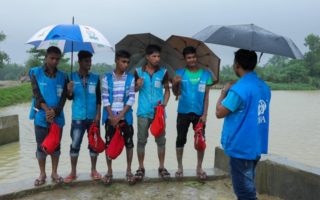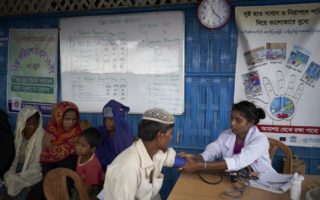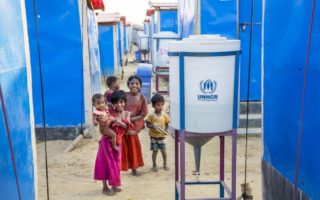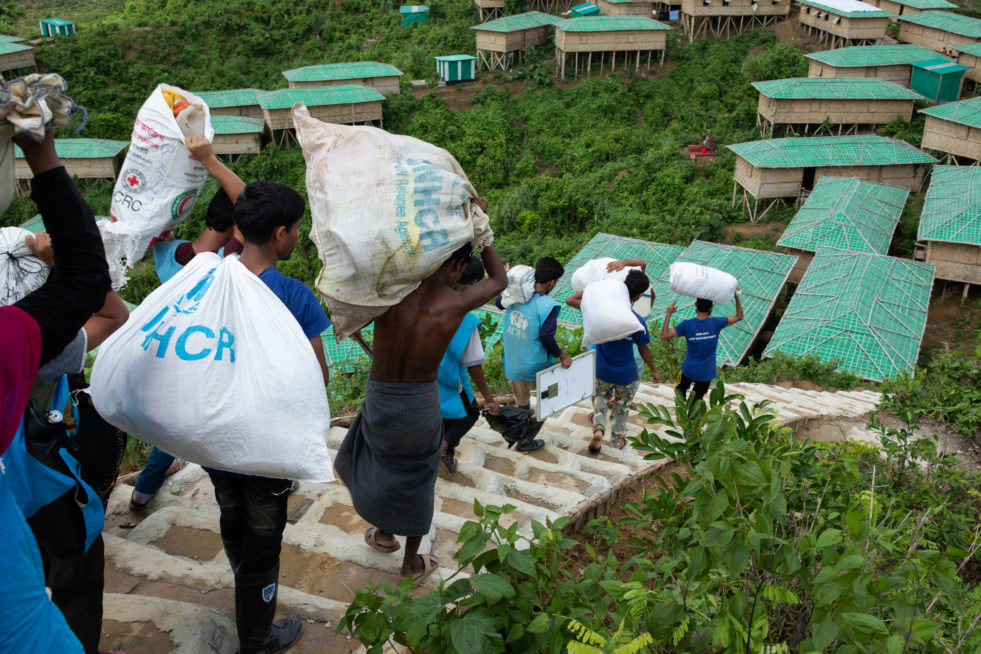
Rohingya families move to new shelters at Chakmarkul settlement in Cox’s Bazar after days of continuous monsoon rains that caused flooding, landslides and shelter damage. © UNHCR/Kamrul Hasan
In 2017, an outbreak of violence in Myanmar’s Rakhine State triggered a mass exodus of more than 700,000 Rohingya refugees—an ethnic minority group of mostly Muslims displaced from their home in Myanmar.
The Rohingya are the world’s largest group of stateless people as Myanmar authorities never recognized their citizenship, which denied them access to health care, education and employment.
Bangladesh is now hosting more than 900,000 Rohingya, the majority of whom are women and children. UNHCR continues to work with government and local partners to provide essentials like food, medicine and shelter. Ongoing challenges remain—particularly during monsoon season.
By the numbers
- 912,373 Estimated total number of refugees living in Cox’s Bazar
- 742,613 Estimated new refugees arrivals since August 25, 2017
- 500,00 Rohingya refugees registered using biometric technology
- 5,000 Average number individuals who receive identity cards daily
Avoiding “the emergency within an emergency”
UNHCR helped Rohingya refugee families prepare for the torrential rains, winds, and other dangers of the 2018 monsoon season, successfully avoiding an “emergency within an emergency.”
This involved relocating more than 24,000 individuals with the aid of UNHCR partners, helping refugees build sturdier homes and anchor existing structures, while also building and renewing 351 kilometres of infrastructure, including bridges, roads, steps, and drainage.
As a result of these efforts, the devastating effects of last year’s monsoon rains and winds were mitigated, and countless lives were saved.
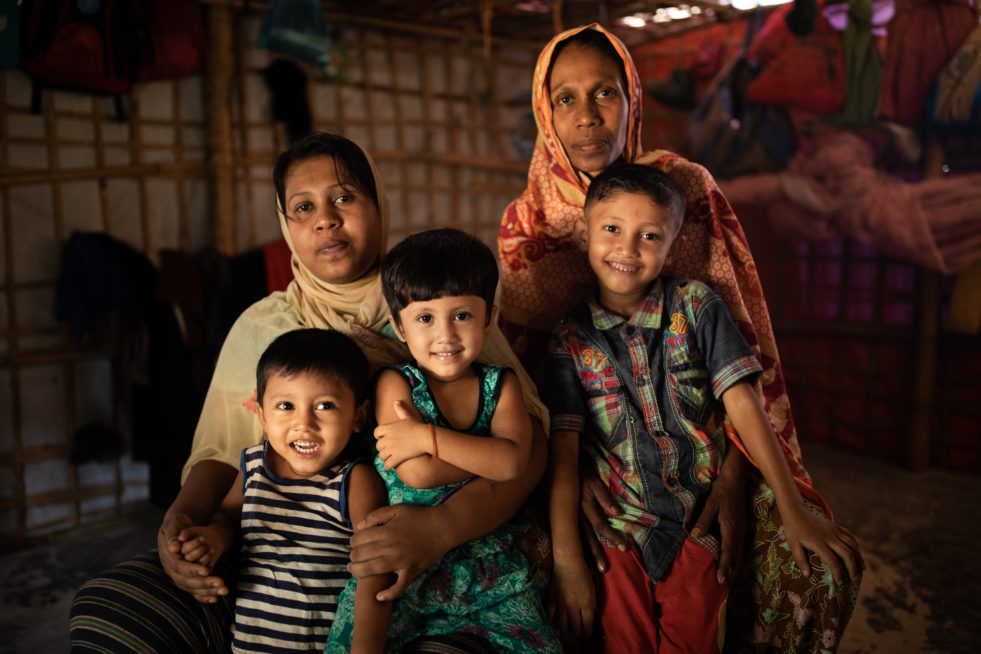
Both Narun Nahar (left) and her mother (top right) lost their husbands during the violence in Myanmar. The two widows now live in Kutupalong refugee settlement: Narun with her two sons and daughter, her mother nearby with relatives. © UNHCR/Kamrul Hasan
Monsoon preparedness in 2019
UNHCR continued to train refugees as first responders, reinforce shelters, improve infrastructure, and relocate families ahead of the 2019 monsoon.
Monsoon preparation efforts included the distribution of 90,000 pre-monsoon kits, including rope, wire, pegs and latrine supplies. Host community families affected by the monsoon have received 3,550 family tents and 220 housing units.
Community-led awareness sessions on emergency preparedness have reached more than 80,000 Rohingya, with more than 1,200 refugees trained as emergency responders.
In July 2019, more than 230 Rohingya refugees benefitted from monsoon training in Nayapara Camp in the Cox’s Bazar district of Bangladesh. The efforts were designed to help the trained refugees to rescue people at risk of drowning in floodwaters. During the heavy rains in Bangladesh, reservoirs and other bodies of water quickly swelled.
Just days after the training was completed, Rohingya volunteers rescued a teenage boy from drowning. It was a dramatic real-life test of their skills gained in a programme supported by UNHCR and its partners, Adventist Development and Relief Agency International (ADRA) and Migrant Offshore Aid Station (MOAS).



